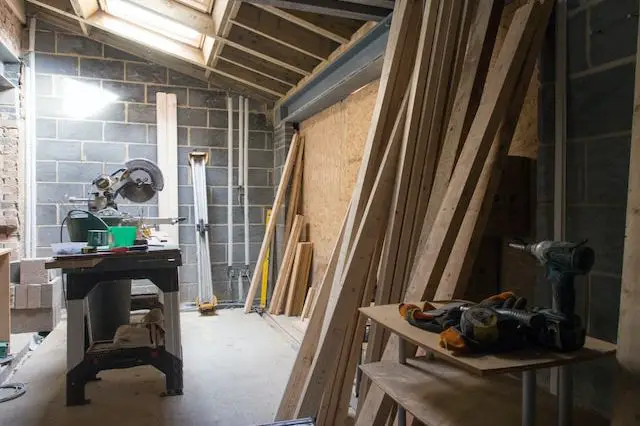Home Improvements That Require a Permit You May not Know about

Do you want to upgrade your house or increase its value and functionality? If so, you may wonder how to generate creative home improvement ideas. Once you’ve decided, find out whether you need to first obtain a permit. Most people know that major renovations need approval. However, some surprising projects also fall under this category. In this article, we’ll uncover these lesser-known home improvements that require you to obtain a permit.
Roofing
First and foremost, roofing permits ensure that the work being done meets safety codes and regulations. This is especially important when it comes to protecting your home from potential water damage or structural issues. Additionally, obtaining a permit means that your roofing contractor has been properly licensed and insured.
If you’re unsure whether you need a permit for your roofing project, check with your local building department. Ignoring this requirement can lead to financial penalties and potential legal repercussions later on. If you’re in a hurry, there are building permit expediting services that can save you time and money. They can thoroughly review all submitted packages for completeness and accuracy, whether they’re for new or existing construction.
Retaining Walls
Whether they’re built for practical reasons or as a decorative feature, retaining walls must comply with local building codes and regulations. These structures are designed to hold back large amounts of soil and provide stability to the surrounding area. Without proper construction techniques and inspections, a retaining wall could eventually fail. In turn, it would put nearby structures at risk. By obtaining a permit, homeowners can be assured that it’ll stand strong for many years.
Retaining walls can significantly impact the flow of water on a property when they’re not properly planned or designed. Local regulations usually require a visit from an engineering specialist. They can analyze how the wall will affect drainage patterns before approving construction. This can help prevent flooding or excessive erosion in other areas of your property – or neighboring properties.
Fences
When installing a fence, it’s essential to be aware of local regulations and permit requirements. Depending on your area, there may be height restrictions. There may additionally be setback requirements from property lines or sidewalks, or regulations regarding the materials used. Ignoring these guidelines can lead to fines, or having to undo all your hard work if it doesn’t meet code standards.
Obtaining proper permits for your fence installation ensures that you don’t unknowingly encroach on neighboring properties. Fences usually mark boundaries between different properties and can cause disputes if not placed accurately. A permit process involves discussing plans with surveyors or land professionals. They can assist in determining where exactly you can place the fence, without crossing into someone else’s territory.
Basements
If you’re considering finishing or remodeling your basement, you need to be aware of the potential permit requirements. They ensure that all work is done safely and up to code, whether you’re adding new outlets, installing lighting fixtures, or rewiring the entire space. If you’re creating new living spaces in your basement (e.g. bedrooms or recreational areas), building permits may also be necessary.
If you’re adding a bathroom or kitchenette to your newly finished basement, plumbing permits are typically required. They guarantee that all plumbing installations follow regulations (regarding water supply lines and waste disposal systems).

Gas Stoves
While swapping out an electric stove for a gas one is a simple task, this particular upgrade often requires a permit. When dealing with natural gas, there are specific codes and standards in place. These ensure proper installation and prevent any potential hazards. Gas stoves require more than just connecting a few pipes. They involve intricate venting systems and combustion air requirements.
Without the necessary permits and inspections, homeowners run the risk of carbon monoxide poisoning or explosions due to improper installation. Obtaining a permit allows professional inspectors to assess the work being done. This provides confidence that everything has been installed correctly, for optimal functionality and safety.
Window and Door Replacements
Installing new windows and doors involves structural changes to the property. In turn, it can impact the overall integrity of the home. By obtaining a permit, homeowners can ensure that these upgrades are done correctly and in compliance with building codes. The changes will involve altering the load-bearing capacity of walls. When old windows or doors are removed, new openings need to be created. This can weaken the structure if not properly supported. Obtaining a permit ensures that an engineer or contractor reviews the plans. They can then ensure that proper support measures (like headers or beams) are installed.
With rising concerns about energy consumption, many jurisdictions have implemented strict regulations. They cover insulation levels and energy performance ratings for doors and windows. By obtaining a permit, homeowners can demonstrate compliance with these standards. This guarantees that they contribute to more eco-friendly living spaces while improving comfort in the home.
Adding Electrical Outlets
While it may seem like a simple task, this can have serious safety implications if not done correctly. Permitting ensures that the work is done by a licensed electrician. In turn, it’ll meet building code requirements to protect you and your family. For a start, working with electricity can be dangerous if it’s not handled properly. Electrical fires are one of the leading causes of house fires, and faulty wiring or improperly installed outlets can increase this risk.
Adding electrical outlets has the potential to overload your circuit breaker. If too many outlets are added to one circuit (without upgrading the electrical panel), it can lead to tripped breakers or an overloaded system. A permit allows for proper load calculations to be performed by an electrician. This ensures that your home’s electrical system can handle the additional demand without any issues.
You can now see why so many home improvements require a permit. Failing to obtain the necessary approval can result in costly fines, and delays in your project. You should familiarize yourself with local regulations and consult with professionals when needed. As a result, you’ll be confident that your home improvements are done legally and safely.



